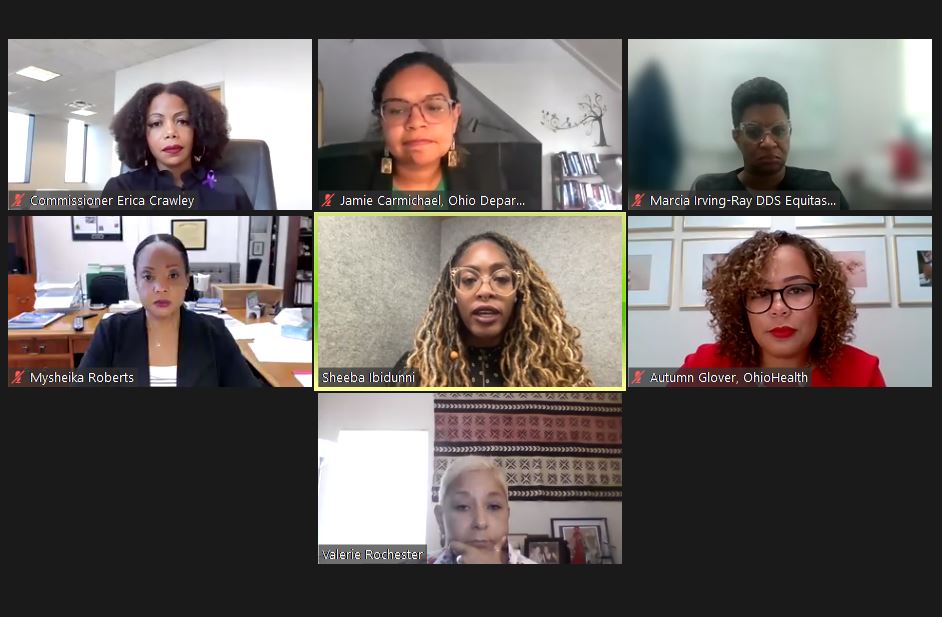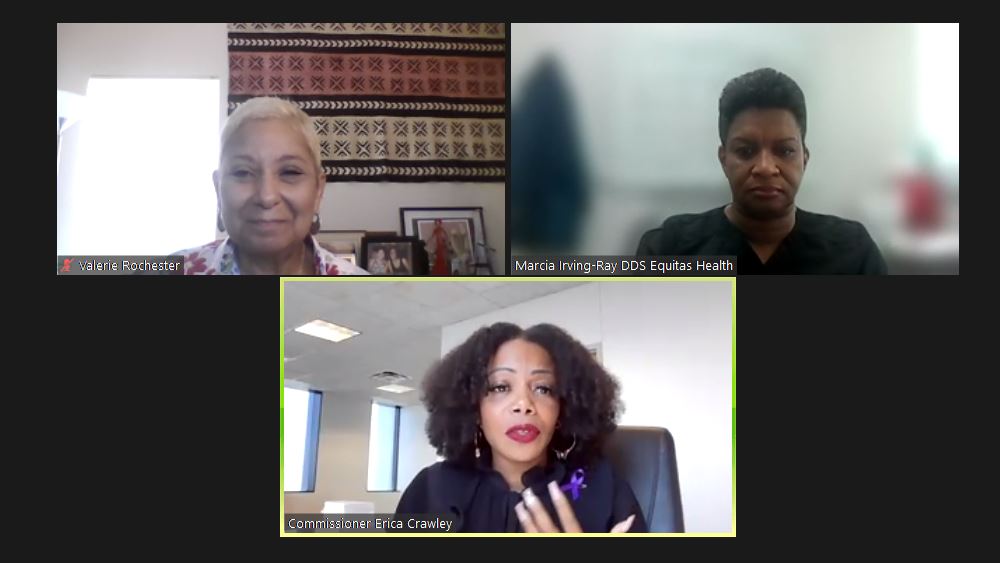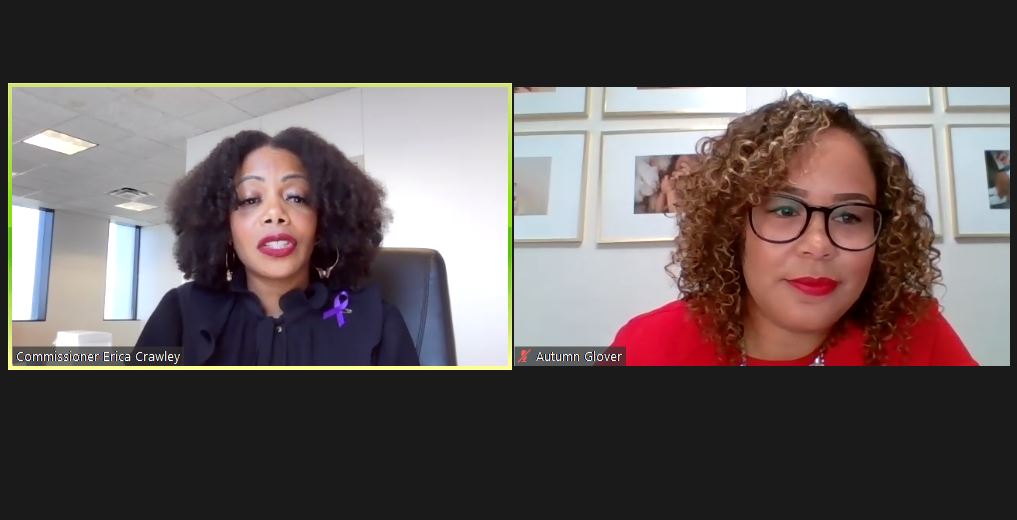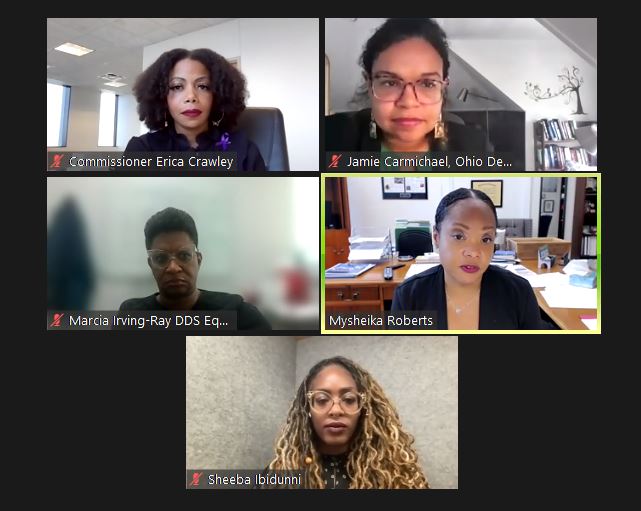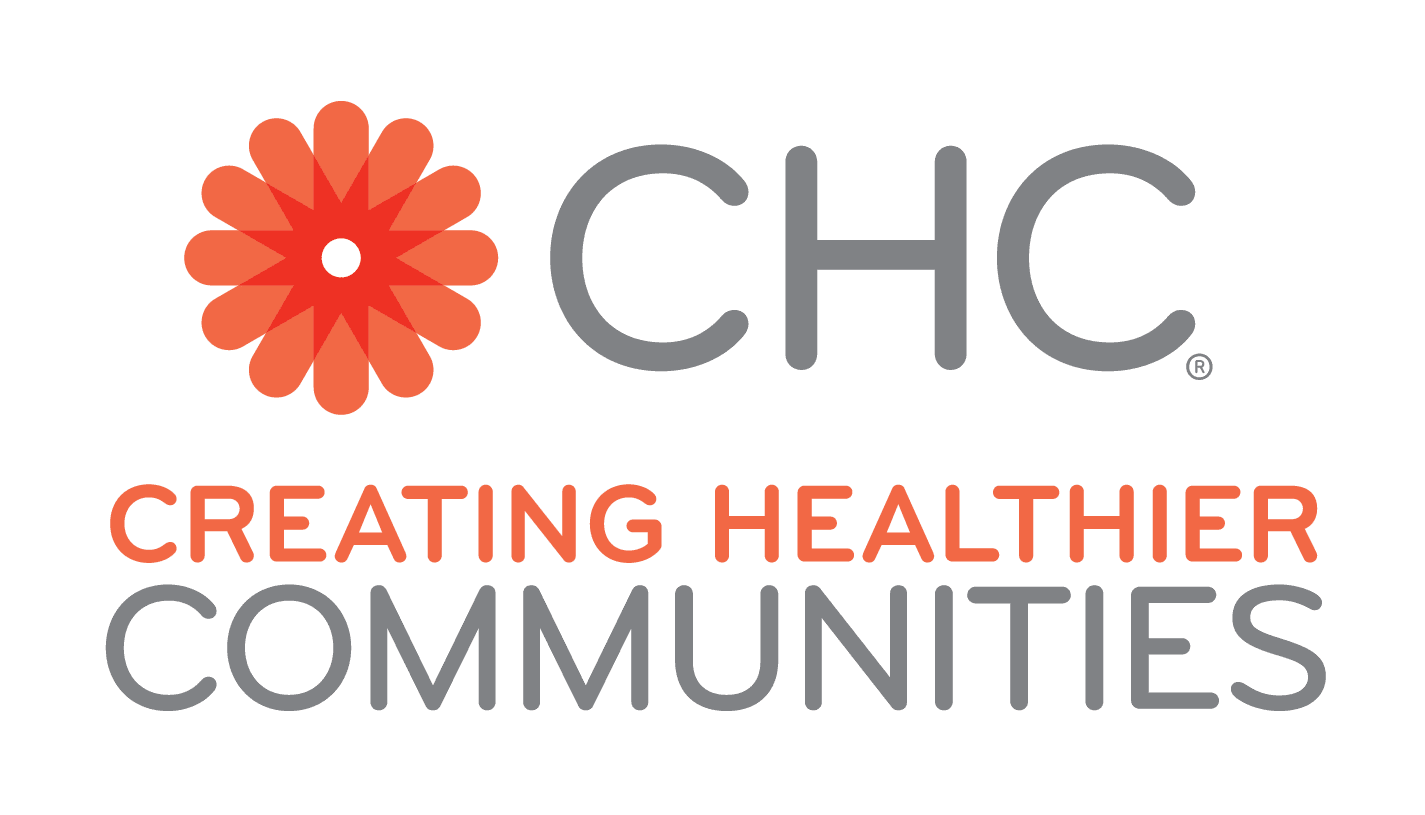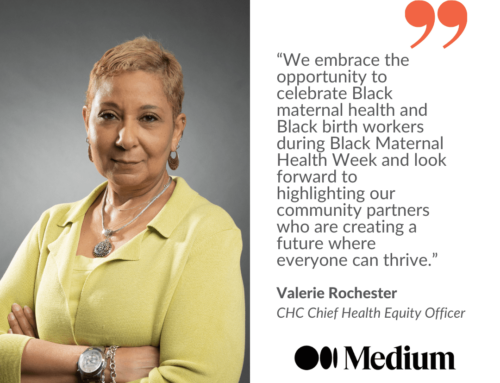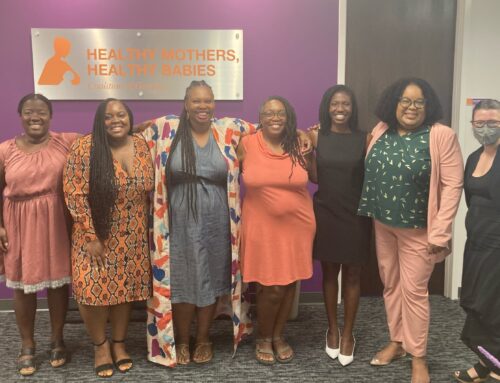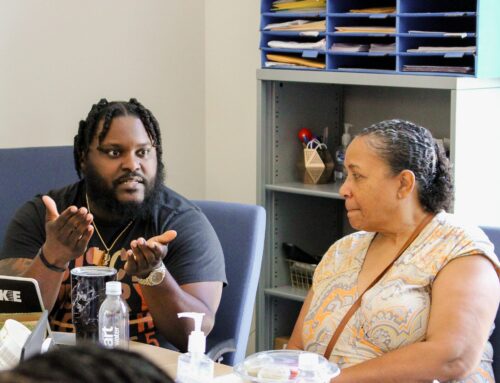The Future of Health: Equity in All Services Columbus Community Conversation
On Tuesday, October 5, 2021, CHC held the latest in the “Future of Health” series with a community conversation around “Equity in All Services” in Columbus, Ohio.
Watch the full recording, download the agenda, or review the highlights below:
- Valerie L. Rochester, Chief Health Equity Officer, CHC: Creating Healthier Communities welcomed attendees and discussed CHC’s ongoing Future of Health convenings here in the Ohio community, playing the role of bridge builder.
- Erica Crawley, Commissioner, Franklin County Board of Commissioners – set the stage by sharing how the COVID-19 pandemic amplified inequity and health disparities and shared the grants given recently for economic mobility, housing, transportation and more. A live poll showed that 95% of attendees indicated their health equity work has changed or evolved in the past 18 months. Erica then moderated the panel. She discussed how important it is to provide feedback to community based organizations if they don’t qualify for grants. The Commissioner also discussed the importance of data, impact, and getting private companies to invest and address the social determinants of health affecting their employees and communities.
- Autumn Glover, Senior Director, Community Partnerships, OhioHealth, opened by discussing the current equity landscape. Our north star is equity – being fair and impartial and getting people what they need. Community engagement is how we get there. The pandemic revealed greater inequities and the need for resilience — the capacity to recover quickly from difficulties. We need to help our communities be resilient and strong. We need community partnerships, cultural humility, and cultural competence. Change moves at the speed of trust and community based organizations have the trust of the people they serve.
- Jamie Carmichael, Chief Health Opportunity Advisor, Ohio Department of Health discussed the pandemic’s impact and racism as a public health issue. The Ohio Department of Health recently received a transformational $31 million government investment for health equity, focusing on workforce development, $9 million on data insights regarding those served, and other community priorities. The Ohio Department of Health is also piloting a policy equity review tool to encourage equity in policy decisions.
- Mysheika Roberts, MD, Commissioner, Columbus Health Department discussed that the importance of naming, identifying and calling out issues to address them. The pandemic, and racial justice movements including George Floyd and Black Lives Matter, exposed the disparities in this country so that more people are aware. The time is now to act quickly and intentionally. Dr. Roberts explained they’ve made it clear to Congress that we need robust and sustained long-term funding with flexibility, not just shifting emergency funding every time there’s a new crisis. She discussed the challenges providing vaccine equity and the importance of partnering with local community based organizations. The CBOs know their neighborhoods and are trusted by communities; government can pay them to do the work. Dr. Roberts also emphasized that every agency and every sector needs to have staff that represents the community they’re caring for, at all levels of staff including leadership, to truly walk the walk.
- Marcia Irving-Ray, DDS, Dental Director, Equitas Health has been practicing since the onset of AIDS and has seen the issues with access to care for people of color for a long time now. COVID-19 kicked the door back open on this issue, and people of color are exponentially affected. She discussed how racism directly affects access to care for people of color and how it starts with increasing people of color in medical school.
- Sheeba Ibidunni, State Government Strategic Advisor, Unite Us went into public health because of health disparities, health inequities, health equity. The language has evolved over time but it all points back to the same roots of racism and systematic discrimination against specific populations. She is energized about this new momentum and driving forward with new, innovative ways to care for the people deliberately ignored. How to get funding to local community based organizations (CBOs) is the million-dollar question. Priorities shift before funding does. Government, CBOs and others need to come together and leverage what each other does well, ensuring the people affected are at the table. Social impact bonds are another interesting new development. Attendees were highly interested in the Unite Ohio platform, a coordinated care network that is offered to nonprofits at no charge. CHC and Unite Us are partnering to recruit more community-based organizations to this valuable platform.
After Q&A, the panel ended by discussing what it would take to advance this work, including adopting a “Health Equity in All Policies” approach, ensuring staff represent the community, collaborating and partnering, and reporting on results and impact.
- Erica Crawley ended the panel by thanking “this dynamic group of powerful women” and discussing the importance of addressing these issues through laws and policies to mitigate the negative health outcomes that impact communities. The Commissioner emphasized she’s looking not just for allies but for co-conspirators to be partners in this work.
- Valerie Rochester closed the event by reinforcing that it’s going to take everyone taking part to address health equity and disrupt the status quo. CHC is actively getting involved to be a bridge, make a difference, and do whatever it takes to ensure communities can lead the charge in doing this work and addressing health equity. Rochester thanked key partners Unite Us and Equitas Health and reiterated that these are ongoing conversations and events about the Future of Health and Equity in All Services. It is critical indeed to ensure equity in all services, address incentives that have been problematic for CBOs and focus on what communities need versus just funders. CHC is committed to ensuring there is increased access to funding streams and opportunities to support CBOs and communities in advancing health equity.
This event is part of a series bringing business, nonprofit and community leaders together to advance equity and address the social determinants of health. Find out more about the last Cleveland convening, read about CHC’s latest health equity work plus sign up for upcoming events. Join the conversation on Twitter with the #EquityinAllServices hashtag.
